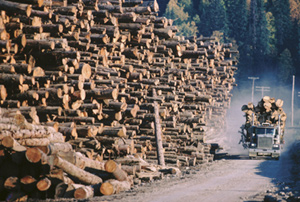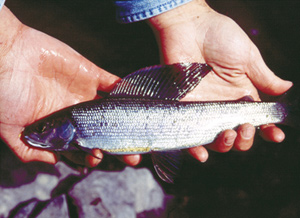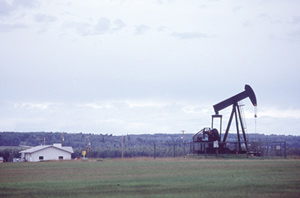 Logging trucks thunder down Canadian highways, helping transport nearly eight billion board feet of timber per year. |
Canada ranked an impressive fourth of all countries rated in the Environmental Sustainability Index, while our neighbour to the south placed a dismal 45th, “but when it comes to allowing extractive industries to run rampant, Canada may be king,” writes E/The Environmental Magazine’s John Holt, an American who seeks to dispel the myth that Canadian developers and raw-material extractors have no blood on their hands. Holt states that coalminers and loggers are doing to some of the last great wilderness on Earth what’s already been done to states across the U.S.
 Indigenous Arctic grayling are threatened by the ravages of extractive industries |
Food for thought: Three-hundred million acres of Canadian forest (one-and-a-half times the size of some Midwestern U.S. states) are slotted for timber production even though these fragile lands are home to two-thirds of the country’s 300,000 wildlife species. Canada’s forests cover an area nearly three times the size of Europe, or 10 percent of the world’s forest cover, but only 5.5 percent of this is under some form of legal protection or constraint related to logging. “This is some of the most productive forest in terms of biomass in the world,” Holt states. But “if present trends continue, all of Canada’s suitable forest will harvested within 30 to 35 years.”
 Oil pumpjacks are a common sight in western Canadian backyards. |
Holt includes his own personal observations, mourning the metamorphosis of Rocky Mountain House, Alberta, once a “rather sedate town of a few thousand sometimes impoverished souls who enjoyed life on the bluffs above the North Fork of the Saskatchewan River,” which has succumbed to “a riot of oil rigs, logging trucks, related workers, and the destructiveness that comes from too much money deposited in a local economy way too quickly.”
Holt summarizes: “The continual boom-and-bust cycle of the West is at play in Canada. Ten, maybe 20 years of feast, then complete collapse … while the oil, coal, and timber companies are long gone, searching for the next valley to plunder.” It’s an old, destructive story, now being played out.